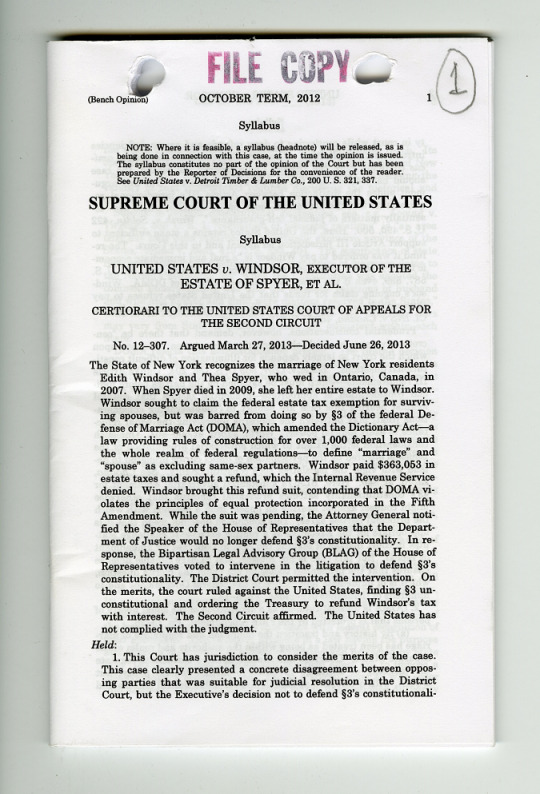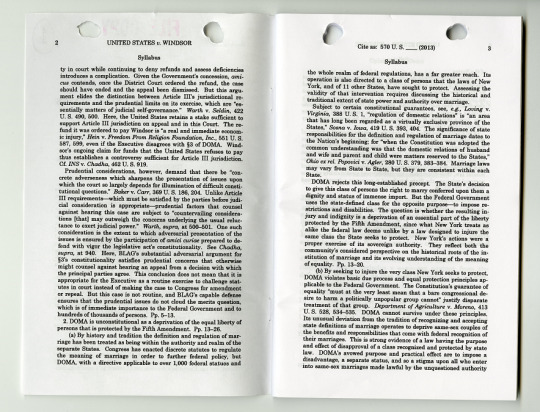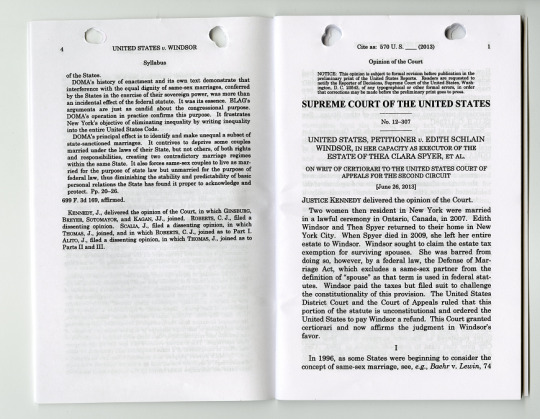#Construction litigation attorney
Text
Hire an Experienced Construction Litigation Attorney Today!

A knowledgeable construction litigation attorney in Lake Charles, Louisiana, can also aid you in crafting a standard agreement that you can use for every job and can research contracts that customers give you before you sign them. Be sure to consult with our experts, who can guide you through the procedure and defend your interests. Get in touch with Scofield, Gerard, Pohorelsky, Gallaugher & Landry, LLC!
#construction attorney#construction litigation attorney#construction issues#construction litigation#construction lawyer
0 notes
Text
Home Insurance Claim Adjuster Secret Tactics
The secrets of home insurance claim adjusters with these expert tactics. Learn the insider tips to maximize your claim, navigate the process smoothly, and ensure you receive the compensation you deserve. Don't let the complexities of insurance claims intimidate you – empower yourself with the knowledge to make the system work for you.

#Breach of Contract#home insurance claim adjuster secret tactics#State Farm Home Insurance Claims#Construction attorney near me#Construction lawyer near me#signs of foundation issues#foundation problems#Construction litigation#Construction attorneys#foundation issues#Construction litigation attorney#construction defect attorney#when to walk away from foundation issues#construction defect#Commercial Insurance Claims#Lawyer to sue contractor near me#construction defect lawyer#Contractor Fraud#Construction Defects#Poor Workmanship#home insurance claim lawyer#Commercial property lawyer#Commercial proprety attorney#Abandonment and Warranty Issues#Fraudulent Builders#Contractor Fraud and disputes
1 note
·
View note
Text

Best Immigration Lawyer in Toronto Brampton
Naz Law is the best immigration specialist lawyer in the Toronto Brampton Area. He has many years of experience in commercial litigation, immigration, real estate, business, and small claims law in the Ontario region of Canada. Visit our site today for an expert lawyer.
#Best immigration Lawyer Toronto Brampton#Best immigration lawyer Brampton#Construction Lawyer#Litigation lawyer#Civil Law attorney#Civil Lawyer Toronto#Civil Lawyer Brampton#Civil Litigation lawyer
2 notes
·
View notes
Text

When venturing into real estate transactions, securing the services of a reliable attorney is paramount. Choosing an excellent real estate attorney requires careful consideration of various factors to ensure a smooth and successful process.
#Real Estate & Construction Law Firm in Mumbai#SRA Lawyers in Mumbai#best Real Estate Lawyers in Mumbai#property dispute lawyers in mumbai#commercial property lawyer in mumbai#real estate litigation attorney in mumbai#redevelopment lawyers in mumbai#redevelopment lawyers in maharashtra#commercial property lawyers in maharashtra
0 notes
Text
vimeo
Bezer Law Office provides the best construction attorney in Bergen County, NJ. Whether you are an owner, contractor, subcontractor, supplier, developer or other construction professional, we can provide you with the legal representation and guidance you need.
Bezer Law Office
30 Park Ave, Lyndhurst, NJ 07071
(201) 677–8693
Official Website: https://www.bezerlaw.com/
Google Plus Listing: https://www.google.com/maps?cid=6381492145994611745
Other Links
construction attorney bergen county : https://www.bezerlaw.com/construction-attorney-bergen-county
building code attorney bergen county : https://www.bezerlaw.com/building-code-land-use
trademark lawyers bergen county : https://www.bezerlaw.com/trademark-copyright-law
landlord tenant lawyer bergen county : https://www.bezerlaw.com/landlord-tenant-law
litigation attorney bergen county : https://www.bezerlaw.com/business-law-commercial-law
real estate attorney bergen county : https://www.bezerlaw.com/real-estate-lawyer-bergen-county
real estate lawyer hudson county : https://www.bezerlaw.com/real-estate-lawyer-hudson-county
real estate attorney middlesex county : https://www.bezerlaw.com/real-estate-lawyer-middlesex-county
Other Service We Provide:
Business Law / Commercial Litigation
Business Advice & Counseling
Building Code / Land Use
Trademark & Copyright Law
Landlord-Tenant Law
Municipal Law
Follow Us On
Twitter: https://twitter.com/LawBezer
Pinterest: https://www.pinterest.com/BezerLawOfficeNJ/
Linkedin: https://www.linkedin.com/in/bezer/
Instagram: https://www.instagram.com/bezerlawoffice/
#construction attorney bergen county#real estate lawyer bergen county#litigation attorney bergen county#trademark lawyers bergen county#building code lawyer bergen county#real estate attorney middlesex county#Vimeo
0 notes
Text
West Palm Beach Real Estate Attorneys | 561.699.0399
West Palm Beach Real Estate Attorneys
The Role Of A West Palm Beach Real Estate Attorney
If you’re thinking of buying or selling a property in West Palm Beach or Florida, you might be feeling overwhelmed with all the legal jargon and paperwork involved. That’s where a real estate attorney comes in. They can guide you through the complex process and make sure everything is done legally and to your…

View On WordPress
#Attorneys#buyer representation#Commercial Real Estate#Construction law#Contract law#Do you need a lawyer for a real estate closing in Florida#Does Florida have attorney review for real estate#escrow deposit disputes#Foreclosure Defense#Homeowners associations (HOAs)#How do I become a real estate attorney in Florida#Land use law#law firms#lawyers#Leasing and rental agreements#Property disputes#Property law#Real estate#Real estate litigation#Real estate transactions#Residential real estate#seller representation#Short sales#Title searches#West Palm Beach#West Palm Beach Real Estate Attorneys#West Palm Beach Real Estate Lawyers#Where do real estate attorneys make the most#Zoning regulations
0 notes
Link
Construction litigation is a legal process that involves disputes arising from construction projects. It can involve contract disputes, disputes over payment, defects in construction, and other matters related to construction projects. Hiring a construction litigation attorney in Sudbury, Massachusetts can be beneficial for a number of reasons.
0 notes
Text

If you're engaged in a real estate dispute, you'll need an experienced real estate litigation lawyer in Houston to represent your interests. At Murray Lobb Attorneys, we have years of experience handling all types of real estate disputes, from boundary disputes and title issues to construction defects and homeowner association problems. Our goal is to make sure that every real estate transaction goes smoothly and seamlessly.
#real estate litigation lawyer#construction law#lawyer#Houston#experienced attorneys#Murray Lobb Attorneys#1950s#pastel#pink#plushies#poem#poets on tumblr#poems on tumblr#poesia#real estate
0 notes
Text



The Supreme Court ruled that the Defense of Marriage Act was unconstitutional on June 26, 2013.
In U.S. v Windsor, SCOTUS held that the federal government could not discriminate against same-sex couples.
Record Group 267: Records of the Supreme Court of the United States
Series: Appellate Jurisdiction Case Files
Transcription:
[Stamped: " FILE COPY "]
(Bench Opinion) OCTOBER TERM, 2012 1 [Handwritten and circled " 1" in upper right-hand corner]
Syllabus
NOTE: Where it is feasible, a syllabus (headnote) will be released, as is
being done in connection with this case, at the time the opinion is issued.
The syllabus constitutes no part of the opinion of the Court but has been
prepared by the Reporter of Decisions for the convenience of the reader.
See United States v. Detroit Timber & Lumber Co., 200 U.S. 321, 337.
SUPREME COURT OF THE UNITED STATES
Syllabus
UNITED STATES v. WINDSOR, EXECUTOR OF THE
ESTATE OF SPYER, ET AL.
CERTIORARI TO THE UNITED STATES COURT OF APPEALS FOR
THE SECOND CIRCUIT
No. 12-307. Argued March 27, 2013---Decided June 26, 2013
The State of New York recognizes the marriage of New York residents
Edith Windsor and Thea Spyer, who wed in Ontario, Canada, in
2007. When Spyer died in 2009, she left her entire estate to Windsor.
Windsor sought to claim the federal estate tax exemption for surviv-
ing spouses, but was barred from doing so by §3 of the federal Defense
of Marriage Act (DOMA), which amended the Dictionary Act---a
law providing rules of construction for over 1,000 federal laws and
the whole realm of federal regulations-to define "marriage" and
"spouse" as excluding same-sex partners. Windsor paid $363,053 in
estate taxes and sought a refund, which the Internal Revenue Service
denied. Windsor brought this refund suit, contending that DOMA vi-
olates the principles of equal protection incorporated in the Fifth
Amendment. While the suit was pending, the Attorney General notified
the Speaker of the House of Representatives that the Department
of Justice would no longer defend §3's constitutionality. In re-
sponse, the Bipartisan Legal Advisory Group (BLAG) of the House of
Representatives voted to intervene in the litigation to defend §3's
constitutionality. The District Court permitted the intervention. On
the merits, the court ruled against the United States, finding §3 un-
constitutional and ordering the Treasury to refund Windsor's tax
with interest. The Second Circuit affirmed. The United States has
not complied with the judgment.
Held:
1. This Court has jurisdiction to consider the merits of the case.
This case clearly presented a concrete disagreement between oppos-
ing parties that was suitable for judicial resolution in the District
Court, but the Executive's decision not to defend §3's constitutionali-
[page 2]
2 UNITED STATES v. WINDSOR
Syllabus
ty in court while continuing to deny refunds and assess deficiencies
introduces a complication. Given the Government's concession, ami-
cus contends, once the District Court ordered the refund, the case
should have ended and the appeal been dismissed. But this argu-
ment elides the distinction between Article Ill's jurisdictional re-
quirements and the prudential limits on its exercise, which are "es-
sentially matters of judicial self-governance." Warth v. Seldin, 422
U. S. 490, 500. Here, the United States retains a stake sufficient to
support Article III jurisdiction on appeal and in this Court. The re-
fund it was ordered to pay Windsor is "a real and immediate econom-
ic injury," Hein v. Freedom From Religion Foundation, Inc., 551 U. S.
587, 599, even if the Executive disagrees with §3 of DOMA. Wind-
sor's ongoing claim for funds that the United States refuses to pay
thus establishes a controversy sufficient for Article III jurisdiction.
Cf. INS v. Chadha, 462 U. S. 919.
Prudential considerations, however, demand that there be "con-
crete adverseness which sharpens the presentation of issues upon
which the court so largely depends for illumination of difficult consti-
tutional questions." Baker v. Carr, 369 U. S. 186, 204. Unlike Article
III requirements---which must be satisfied by the parties before judi-
cial consideration is appropriate---prudential factors that counsel
against hearing this case are subject to "countervailing considera-
tions [that] may outweigh the concerns underlying the usual reluc-
tance to exert judicial power." Warth, supra, at 500-501. One such
consideration is the extent to which adversarial presentation of the
issues is ensured by the participation of amici curiae prepared to de-
fend with vigor the legislative act's constitutionality. See Chadha,
supra, at 940. Here, BLAG's substantial adversarial argument for
§3's constitutionality satisfies prudential concerns that otherwise
might counsel against hearing an appeal from a decision with which
the principal parties agree. This conclusion does not mean that it is
appropriate for the Executive as a routine exercise to challenge stat-
utes in court instead of making the case to Congress for amendment
or repeal. But this case is not routine, and BLAG's capable defense
ensures that the prudential issues do not cloud the merits question,
which is of immediate importance to the Federal Government and to
hundreds of thousands of persons. Pp. 5-13.
2. DOMA is unconstitutional as a deprivation of the equal liberty of
persons that is protected by the Fifth Amendment. Pp. 13--26.
(a) By history and tradition the definition and regulation of mar-
riage has been treated as being within the authority and realm of the
separate States. Congress has enacted discrete statutes to regulate
the meaning of marriage in order to further federal policy, but
DOMA, with a directive applicable to over 1,000 federal statues and
[NEW PAGE]
Cite as: 570 U.S._ (2013) 3
Syllabus
the whole realm of federal regulations, has a far greater reach. Its
operation is also directed to a class of persons that the laws of New
York, and of 11 other States, have sought to protect. Assessing the
validity of that intervention requires discussing the historical and
traditional extent of state power and authority over marriage.
Subject to certain constitutional guarantees, see, e.g., Loving v.
Virginia, 388 U.S. 1, "regulation of domestic relations" is "an area
that has long been regarded as a virtually exclusive province of the
States," Sosna v. Iowa, 419 U. S. 393, 404. The significance of state
responsibilities for the definition and regulation of marriage dates to
the Nation's beginning; for "when the Constitution was adopted the
common understanding was that the domestic relations of husband
and wife and parent and child were matters reserved to the States,"
Ohio ex rel. Popovici v. Agler, 280 U. S. 379, 383-384. Marriage laws
may vary from State to State, but they are consistent within each
State.
DOMA rejects this long-established precept. The State's decision
to give this class of persons the right to marry conferred upon them a
dignity and status of immense import. But the Federal Government
uses the state-defined class for the opposite purpose---to impose re-
strictions and disabilities. The question is whether the resulting injury
and indignity is a deprivation of an essential part of the liberty
protected by the Fifth Amendment, since what New York treats as
alike the federal law deems unlike by a law designed to injure the
same class the State seeks to protect. New York's actions were a
proper exercise of its sovereign authority. They reflect both the
community's considered perspective on the historical roots of the in-
stitution of marriage and its evolving understanding of the meaning
of equality. Pp. 13--20.
(b) By seeking to injure the very class New York seeks to protect,
DOMA violates basic due process and equal protection principles ap-
plicable to the Federal Government. The Constitution's guarantee of
equality "must at the very least mean that a bare congressional de-
sire to harm a politically unpopular group cannot" justify disparate
treatment of that group. Department of Agriculture v. Moreno, 413
U. S. 528, 534-535. DOMA cannot survive under these principles.
Its unusual deviation from the tradition of recognizing and accepting
state definitions of marriage operates to deprive same-sex couples of
the benefits and responsibilities that come with federal recognition of
their marriages. This is strong evidence of a law having the purpose
and effect of disapproval of a class recognized and protected by state
law. DOMA's avowed purpose and practical effect are to impose a
disadvantage, a separate status, and so a stigma upon all who enter
into same-sex marriages made lawful by the unquestioned authority
[page 3]
4 UNITED STATES v. WINDSOR
Syllabus
of the States.
DOMA's history of enactment and its own text demonstrate that
interference with the equal dignity of same-sex marriages, conferred
by the States in the exercise of their sovereign power, was more than
an incidental effect of the federal statute. It was its essence. BLAG's
arguments are just as candid about the congressional purpose.
DOMA's operation in practice confirms this purpose. It frustrates
New York's objective of eliminating inequality by writing inequality
into the entire United States Code.
DOMA's principal effect is to identify and make unequal a subset of
state-sanctioned marriages. It contrives to deprive some couples
married under the laws of their State, but not others, of both rights
and responsibilities, creating two contradictory marriage regimes
within the same State. It also forces same-sex couples to live as mar-
ried for the purpose of state law but unmarried for the purpose of
federal law, thus diminishing the stability and predictability of basic
personal relations the State has found it proper to acknowledge and
protect. Pp. 20-26.
699 F. 3d 169, affirmed.
KENNEDY, J., delivered the opinion of the Court, in which GINSBURG,
BREYER, SOTOMAYOR, and KAGAN, JJ., joined. ROBERTS, C. J., filed a
dissenting opinion. SCALIA, J., filed a dissenting opinion, in which
THOMAS, J., joined, and in which ROBERTS, C. J., joined as to Part I.
ALITO, J., filed a dissenting opinion, in which THOMAS, J., joined as to
Parts II and III.
[NEW PAGE]
Cite as: 570 U. S. _ (2013) 1
Opinion of the Court
NOTICE: This opinion is subject to formal revision before publication in the
preliminary print of the United States Reports. Readers are requested to
notify the Reporter of Decisions, Supreme Court of the United States, Washington,
D. C. 20543, of any typographical or other formal errors, in order
that corrections may be made before the preliminary print goes to press.
SUPREME COURT OF THE UNITED STATES
No. 12-307
UNITED STATES, PETITIONER v. EDITH SCHLAIN
WINDSOR, IN HER CAPACITY AS EXECUTOR OF THE
ESTATE OF THEA CLARA SPYER, ET AL.
ON WRIT OF CERTIORARI TO THE UNITED STATES COURT OF
APPEALS FOR THE SECOND CIRCUIT
[June 26, 2013]
JUSTICE KENNEDY delivered the opinion of the Court.
Two women then resident in New York were married
in a lawful ceremony in Ontario, Canada, in 2007. Edith
Windsor and Thea Spyer returned to their home in New
York City. When Spyer died in 2009, she left her entire
estate to Windsor. Windsor sought to claim the estate tax
exemption for surviving spouses. She was barred from
doing so, however, by a federal law, the Defense of Mar-
riage Act, which excludes a same-sex partner from the
definition of "spouse" as that term is used in federal stat-
utes. Windsor paid the taxes but filed suit to challenge
the constitutionality of this provision. The United States
District Court and the Court of Appeals ruled that this
portion of the statute is unconstitutional and ordered the
United States to pay Windsor a refund. This Court granted
certiorari and now affirms the judgment in Windsor's
favor.
I
In 1996, as some States were beginning to consider the
concept of same-sex marriage, see, e.g., Baehr v. Lewin, 74
#archivesgov#June 26#2013#2010s#Pride#LGBTQ+#LGBTQ+ history#U.S. v Windsor#Defense of Marriage Act#same-sex marriage#Supreme Court#SCOTUS
143 notes
·
View notes
Text
On June 19, 2021, a convoy of armed men drove into the border city of Reynosa, Mexico, in the state of Tamaulipas, and opened fire on pedestrians. For more than eight hours, gunmen roamed four neighborhoods, kidnapping and killing 15 people, including two cab drivers, a nursing student, and a group of construction workers. After security forces were deployed throughout the city, four suspected gunmen were killed. In the days that followed, rumors spread on social media. People in Reynosa were afraid to go back out into the streets, factories shortened their night hours to protect their employees, and local businesses closed early.
Three days later, the attorney general of Tamaulipas, Irving Barrios Mojica, said the motive of the attack was to destabilize Mexican society. The attackers belonged to a cartel that was looking to gain control of the area surrounding the Pharr-Reynosa International Bridge, which straddles the U.S.-Mexico border. The authorities seized a formidable amount of weaponry from the men: about 180 cartridge cases in total, as well as five long guns, and several .223-caliber magazines, which are commonly used in AR-style semi-automatic rifles. These weapons had one thing in common: They came from the United States.
The Reynosa massacre is just one recent entry in a long list of violent acts committed with U.S.-made weapons in Mexican territory. At least 70 percent of guns recovered at crime scenes in Mexico between 2014 and 2018 were trafficked into the country from the United States. Although the exact number of weapons smuggled across the border is uncertain, a study quoted by the Mexican government estimates that 2.2 percent of the nearly 40 million guns manufactured annually in the United States make their way into Mexico, amounting to more than half a million weapons a year. Hidden inside vehicles, appliances, and furniture or trafficked by sea in sealed shipping containers, U.S.-made weapons are bringing violence from north to south, according to the Mexican government.
In 2021, Mexico filed an unprecedented lawsuit against U.S. weapons manufacturers and a firearms distributor in the District Court in Boston, the first suit filed by a foreign government against the U.S. gun industry. The lawsuit names gun manufacturers such as Barrett Firearms Manufacturing, Colt’s Manufacturing Company, Smith & Wesson Brands, Glock, Beretta, and Century International Arms and aims to hold them responsible for facilitating the flow of weapons across the border.
The complaint was dismissed by the District Court in September 2022, and Mexico filed an appeal in March. On July 24, the Mexican government urged the U.S. Court of Appeals in Boston to revive the suit, arguing that a U.S. law does not protect U.S. gun manufacturers from being sued over gun trafficking that leads to violence in Mexico. A ruling is expected in the coming months, but this lawsuit could potentially set a precedent for cross-border litigation and strengthen the global fight against the illicit arms trade. The Mexican government is seeking at least $10 billion in damages for economic harm, yet the primary aim of the lawsuit is more ambitious: to curb gun trafficking by forcing changes to the business practices of U.S. gun companies and pushing for tighter controls on their distribution systems.
Mexico has strict national gun laws. There is only one store in the country where individuals can legally purchase a gun. The store is owned and operated by the military, and fewer than 50 gun permits are issued annually, mainly to prominent businesspeople, public figures, or individuals who have been the victim of a crime and need a firearm for protection, said Lt. Col. Israel Martínez Valdés from the Federal Registry of Firearms and Control of Explosives, responsible for gun permits.
After a U.S. ban on assault weapons expired in 2004, the Mexican government’s suit argues, U.S. gun manufacturers increased production, “particularly of the military-style assault weapons favored by the drug cartels.” The lawsuit alleges that this accompanied a dramatic increase in homicides across the border after 2004. One of the most common types of gun smuggling across the U.S.-Mexico border is the hormigas (“ants”) method, in which straw buyers—intermediaries with clean records who are sent to buy guns on behalf of third parties—pass weapons on to traffickers, who smuggle them in small quantities.
Zulia Orozco Reynoso and Gerardo Hernández, researchers at the Autonomous University of Baja California in northern Mexico, explained that local gun shows in the United States lack restrictions and controls, which makes it easier for weapons to cross the border undetected. Dealers purchase large quantities of guns from distributors and resell them at gun shows with no paperwork and no questions asked, the Mexican government’s suit states. Private or unlicensed sellers at gun shows in the United States are not required to conduct background checks or maintain records linking weapons to buyers, a fact known as the “gun show loophole” or “private sale exception.” Traffickers can buy several guns at once and smuggle them in private vehicles without being monitored by U.S. or Mexican authorities.
The California-Baja California border region, which stretches for 120 miles, is one of the busiest land border crossings in the world. Yet while an enormous law enforcement operation ensures that people do not travel from south to north unauthorized, movement from north to south is far less surveilled. The guns “come by land, by air, by sea, and through the tunnels along the border,” Hernández said.
Much of this trafficking is done by people with dual citizenship or Americans hired by drug cartels. Mexican citizens can face up to 10 years in prison for trafficking a gun and up to 30 years for trafficking weapons intended exclusively for military use. Yet foreigners introducing a single weapon to the country for the first time are merely fined, Orozco Reynoso said, and the weapon is returned to them when they leave the country.
“The risks for Mexicans are greater, or at least they are not given a second chance, unlike Americans,” Orozco Reynoso added.
Dangerous weapons don’t just end up in the hands of criminal cartels. Law enforcement and members of the Mexican defense ministry, the nation’s sole authorized importer of firearms, have also committed atrocities with U.S.-manufactured firearms. A 2018 report by the Mexican Commission for the Defense and Promotion of Human Rights affirms that legally imported firearms have been used by police and military units in gross human rights abuses. The local police who attacked the 43 Ayotzinapa students who disappeared in September 2014 were armed with legally imported Colt AR-6530 rifles. In 2011, a man was arrested in Tamaulipas for allegedly belonging to a criminal organization; while he was in custody, a navy lieutenant killed him with a 5.56 mm Colt M16 rifle.
Legally acquired firearms from military and law enforcement stocks are also diverted with the cooperation of corrupt authorities. Between 2006 and 2017, more than 20,000 firearms were reported as lost or stolen, according to the Mexican defense ministry. Last year, a leak of more than 4 million confidential documents from the ministry by the hacker activist group Guacamaya revealed that high-level military members had sold guns, grenades, and tactical equipment to criminal organizations.
U.S. gun manufacturers know that their marketing and distribution practices have caused harm in Mexican territory, the Mexican government claims. According to its complaint, U.S. gun manufacturers have not implemented public safety measures in their distribution systems, such as comprehensive training for dealers and a code of conduct that requires distributors to keep better track of their inventories. Mexico contends that U.S. gun manufacturers design semi-automatic rifles that can be easily modified to fire automatically, a feature sought after among cartels. These practices “aid and abet the killing and maiming of children, judges, journalists, police, and ordinary citizens throughout Mexico,” the lawsuit says.
For Alejandro Celorio, Mexico’s lead attorney and spokesperson for the foreign ministry, this “lack of care” facilitates the illegal trade in their weapons. “It’s the number of guns but also the type of guns that are sold in the United States with total irresponsibility,” Celorio said. In the United States, “guns are sold to someone who wants to kill children in a kindergarten or to someone who works with organized crime.”
Mexico argues that these companies have access to firearms trace data that identifies specific networks of distributors and dealers that regularly supply drug cartels in Mexico. Based on reports from the U.S. Justice Department’s Bureau of Alcohol, Tobacco, Firearms, and Explosives, the Mexican government revealed that over a four-year period in the mid-2000s, more than 500 Century Arms WASR-10 rifles originally purchased in the United States were seized at crime scenes in Mexico. Yet Century Arms, the lawsuit claims, continued to supply its rifles to the same distributors and dealers. (Century Arms did not respond to a request for comment.)
The U.S. gun-makers filed a joint motion in 2021 to dismiss Mexico’s claims, arguing that the injury is not traceable to the gun manufacturers but rather stems from violence committed by criminals in Mexico. They further argue that allowing foreign law to apply “would invite other nations to likewise invoke their own laws to attack the U.S. firearms industry.”
“The scope of liability the complaint suggests well exceeds what any U.S. court would permit at common law, even under strict product liability. And such a pervasive assault on the firearm industry would imperil civilian access to firearms—a right guaranteed by both the U.S. and Massachusetts constitutions,” the joint motion states.
On Sept. 30, 2022, when Judge F. Dennis Saylor dismissed Mexico’s lawsuit, he stated that “while the Court has considerable sympathy for the people of Mexico,” the Mexican government’s claims do not outweigh the protections provided to gun manufacturers by the Protection of Lawful Commerce in Arms Act (PLCAA), a U.S. federal statute that bars lawsuits seeking to hold gun manufacturers liable when individuals use their guns illegally. Since 2005, the PLCAA has granted gun manufacturers and dealers broad immunity from lawsuits when deadly crimes are committed with their products. Saylor added that while the PLCAA contains several exceptions, such as claims for damage caused by a defective firearm or for entrusting a gun to someone the dealer knows is high risk, none apply in this case.
However, in its appeal, the Mexican government argues that because crimes were committed on Mexican territory, U.S. federal law does not apply; instead, Mexico should be allowed to sue the companies for breaches of Mexican law. When U.S.-based corporations cause injury abroad, the U.S. Constitution and statutes allow other nations to sue for violations of their own laws, the lawsuit states. It further argues that the defendants violated Connecticut and Massachusetts consumer protection laws by knowingly marketing their products to criminals and drug cartels.
Heidi Li Feldman, a law professor at Georgetown University and an expert on gun litigation, said the Sandy Hook settlement provides a road map for how to circumvent PLCAA protections with consumer protection laws. In that case, the families of nine victims of the 2012 shooting at Sandy Hook Elementary School argued that Remington Arms, the manufacturer of the AR-style semi-automatic rifle used in the shooting, violated state laws by marketing its Bushmaster XM15-E2S to “at-risk” young men as a combat weapon and allowing the gun to be depicted in video games. They reached a $73 million settlement with Remington in 2022.
“The suit’s going to be fiercely fought on the grounds of whether PLCAA applies to it in the first instance,” Feldman said. The PLCAA was never meant to apply extraterritorially, she said, and it would be “politically unpopular” in the United States to allow foreign governments to sue.
Mexico filed a second lawsuit in a U.S. federal court in October 2022, this time against five gun dealers in Arizona. That lawsuit seeks to prove that the dealers knowingly sold weapons to straw purchasers.
The complex and extensive web of protections for U.S. gun manufacturers, mainly created by the PLCAA, makes it difficult for Mexico to beat the industry. But the lawsuits have received international support. Among those who submitted supporting amicus curiae briefs are U.S. prosecutors and district attorneys, activists, victims of armed violence from both sides of the border, and Latin American and Caribbean countries that argue that guns smuggled across the U.S.-Mexico border do not end up only in Mexico—they continue to flow into other countries throughout the Western Hemisphere, while more weapons are transported from the United States directly to the rest of the region via shipping companies and commercial airlines.
“We have come a long way, and this conversation about the illicit arms trade is becoming more and more questioning about the irresponsibility of companies,” said Celorio, the lead attorney.
A new piece of legislation in the United States, the first major federal gun safety law passed in nearly 30 years, also may change smuggling patterns. Signed into law in June 2022, the Bipartisan Safer Communities Act cracks down on straw purchasers, allowing them to be punished with up to 15 years in prison or 25 years if the firearms are linked to serious criminal activity such as drug trafficking. In September 2022, a 25-year-old U.S. citizen living in Mexico was driving south to the port in Laredo, Texas, with 17 handguns. He is the first person to be convicted under the new law. According to Justice Department officials, between Jan. 21, 2020, and July 11, 2022, the 25-year-old purchased 231 handguns.
The success of the Mexican lawsuits, however, depends largely on lifting the general immunity that the PLCAA grants to the powerful gun industry and lobby. A win for Mexico could open the door for other foreign governments to sue U.S. gun-makers for violence in their countries. Whatever the outcome, the litigation raises a question that the United States has not wanted to answer: Who will hold U.S. gun manufacturers responsible for the violence they cause abroad?
17 notes
·
View notes
Text
Avoid Potential Pitfalls with Our Construction Attorney!

Resolve construction disputes with confidence - hire an experienced construction litigation attorney in Lake Charles, Louisiana. Scofield, Gerard, Pohorelsky, Gallaugher & Landry, LLC has dedicated legal team specializes in navigating complex construction cases, advocating for your rights, and achieving favorable outcomes. Reach out to us for a consultation today.
#construction attorney#construction litigation attorney#construction issues#construction litigation#construction lawyer
0 notes
Text

Our Real Estate Lawyers thoroughly know the law and the local market. We can help you successfully navigate the Indian real estate market by providing full-service legal advice on all aspects of Indian real estate law from purchasing or selling real estate to all the further formalities and compliances.
#Real Estate & Construction Law Firm in Mumbai#SRA Lawyers in Mumbai#best Real Estate Lawyers in Mumbai#property dispute lawyers in mumbai#commercial property lawyer in mumbai#real estate litigation attorney in mumbai#redevelopment lawyers in mumbai
0 notes
Text
Bezer Law Office provides the best real estate lawyer in Bergen County, NJ. Our Bergen County real estate attorney maintains superior knowledge of the trends and key figures in select areas to enable us to obtain very favorable outcomes for our clients in Bergen County.
Bezer Law Office
30 Park Ave, Lyndhurst, NJ 07071
(201) 677–8693
Official Website: https://www.bezerlaw.com/
Google Plus Listing: https://www.google.com/maps?cid=6381492145994611745
Our Other links
bergen county real estate attorney: https://www.bezerlaw.com/real-estate-lawyer-bergen-county
construction attorney bergen county: https://www.bezerlaw.com/construction-attorney-bergen-county
real estate lawyer hudson county: https://www.bezerlaw.com/real-estate-lawyer-hudson-county
real estate attorney middlesex county: https://www.bezerlaw.com/real-estate-lawyer-middlesex-county
litigation attorney bergen county: https://www.bezerlaw.com/business-law-commercial-law
landlord tenant lawyer bergen county: https://www.bezerlaw.com/landlord-tenant-law
trademark lawyers bergen county: https://www.bezerlaw.com/trademark-copyright-law
building code attorney bergen county: https://www.bezerlaw.com/building-code-land-use
Other Service We Provide:
Business Law / Commercial Litigation
Business Advice & Counseling
Building Code / Land Use
Trademark & Copyright Law
Landlord-Tenant Law
Municipal Law
Follow Us On
Twitter: https://twitter.com/LawBezer
Pinterest: https://www.pinterest.com/BezerLawOfficeNJ/
Linkedin: https://www.linkedin.com/in/bezer/
Instagram: https://www.instagram.com/bezerlawoffice/
#trademark lawyers bergen county#litigation attorney bergen county#real estate lawyer bergen county#construction attorney bergen county
0 notes
Text
In some of your films, I thought you strained to touch on the pressure the world puts on home life and families. Here these scenes are tremendously moving, partly because of Crowe and Diane Venora, who is amazing as his wife. When Jeffrey realizes he may go to jail, he asks flat out what that means and what will happen to his wife and daughters.
People go to jail on episodic television and in motion pictures all the time. “Well, if you’re convicted, Guilty!” Bang. Bullshit! What does it really mean? I mean, what does your wife do if that happens? Oh, your wife’s gonna have to go to work? So who’s gonna take care of your children? In the real world, there are ramifications. When Brown & Williamson threatens Jeffrey Wigand with litigation, how does he get attorneys? Who pays for the attorneys? How do you stay secure? How do you afford security? How do you protect your telephonic communications from being invaded? It costs money to have somebody sweep your phone systems. How do you afford all this stuff? Even the pressure on a well-constructed marriage would be huge. Think of it: A Fortune 500 company that is highly litigious, that is known for having thuggish tactics, wants to get you. They really want to get you. And Jeffrey Wigand is not in a marriage where there is a lot of communication—this is not Lowell Bergman walking home and his wife looks up from gardening and asks, “Honey, what’s wrong?” ’cause she knows something’s wrong. This is a marriage where the two people can’t talk. You know the heart of the marriage, ’cause they can relate to a third party—the only time they’re just spontaneously close is when one of their kids is sick. But one-to-one, it’s defensive, the words and behaviors are encoded, there are all these problems. It’s not so much a good marriage that gets broken, as a broken marriage in which the participants care about each other, try to re-form, and just when they’re trying to re-form—that’s when it gets attacked. You bet that’s where the pressure hits.
7 notes
·
View notes
Link
Construction litigation is a legal process that involves disputes arising from construction projects. It can involve contract disputes, disputes over payment, defects in construction, and other matters related to construction projects. Hiring a construction litigation attorney in Sudbury, Massachusetts can be beneficial for a number of reasons.
0 notes